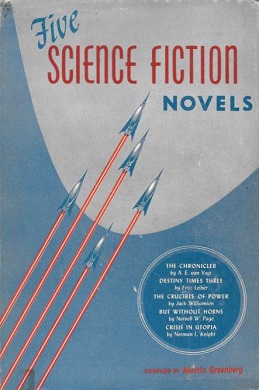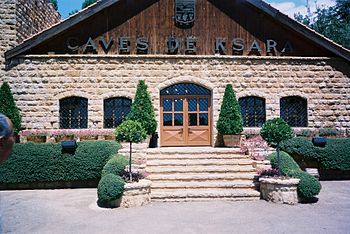Ugh. Even the title of this blog post makes me want to heave. But, like it or not, as a writer you're going to need to work out how you define yourself on The Tangled Web. Remember that one - when the marketing nongs who gave us 'the cloud' and 'the Internet of things' coin that as the next bigbig thing, you can all queue up to give me the credit for inventing it.
Suit: "We're defining the solutions that will make sense of TTW and simplify the muddle of the interconnectedness huddle."
Lesser mortal: "Sorry, TTW? What's that?"
Suit (smugly): "The Tangled Web. Duh."
Wow. I haven't said a thing yet and I've already managed to completely derail myself.
So. Authors. Websites. Basically, you're going to have to work out what you do about websites and the like. For myself, it was all nice and simple. When I published
Olives - A Violent Romance, I started a blog of the book and a book website. At the time I worried a little about whether that was the right move, or whether I should have an
Alexander McNabb site that had the books in it, but I was greedy for SEO, in part because Olives is such a pants title for a book (long story) and in part because it doesn't really matter what you do for a day job, you're too close to things when it's your own work.
The
blog of the book was a clear content-led promotion play and launched in January 2012. I kept it going until around May 2013, by which time I was so exhausted by book promotion I could barely look at an Olive, let alone write about the blasted things. The blog was basically an ongoing discussion of the book's content, quoting bits of book and discussing the ideas, concepts and situations behind each quote. In total it's pulled about 24,000 page views and is still averaging a little under 400 views a month. That's not bad, really, but when you take
McNabb's Law Of Clicks into account, it's not a very big hill of beans.
The book's website was nice and easy to do: I used Blogger as a CMS (Content Management System), because it's the Barney of CMSs (Wordpress is immeasurably more powerful, but complicated. Blogger is all primary colours and simple steps) and the introduction of multiple pages meant it was just fine for simple sites. I had a little help from
+Derrick Pereira who knows more about the under the bonnet stuff than I do - other than that, it's simple enough for an averagely connected person. The website's pulled about 17,000 views since December 2011 when I launched it, which isn't actually much as it was the landing page for most of my Tweets and Facebook posts - but it's nice to have somewhere to send people to get more information on your book before you launch them at Amazon to close the deal.
The
Beirut - An Explosive Thriller website launched a year later and has pulled about 14,000 views, while
Shemlan - A Deadly Tragedy has a measly 4,000 - a reflection on how increasing weariness has negatively impacted the amount of book promotion I've been doing, really. Perhaps interestingly, particularly as a test of the previously mentioned Law Of Clicks,
Olives has seen 2,000 clicks on the 'buy Olives' page,
Beirut has pulled a tad more (but possibly that's Lebanese politicians who thought someone else might be selling the city cheaper than they are) and
Shemlan 1,000 clicks. Those clicks on the 'buy the book' pages have not translated into an equivalent number of book sales, believe me.
I decided on a simple common naming convention, olivesthebook.com and so on. Clearly I wasn't getting Olives.com or Beirut.com. And, of course, I put the address of each website into the books themselves, alongside alexandermcnabb.com.
Alexandermcnabb.com was originally just a redirect. I snaffled the domain (from whois.com, where I do all my web stuff) but didn't really get around to doing anything with it except redirect the URL to this here blog. After a while I bit the bullet and put up a simple, five-page site using Whois' Sitebuilder, which is a very simple to use but really quite powerful website template manager and CMS.
That 'strategy' has now run its course. I can't go on launching a new website for each book, apart from anything else it's costing me $9.98 a year in domain registration fees for each site. So over the weekend I pulled the primary content from each book website and put it all under alexandermcnabb.com, giving myself a 'proper' author website by taking Whois' 20 page package, rolling up my sleeves and structuring the site to be very book-centric. There are now six books up there (including the appallingly neglected, some would say justifiably,
Space) and there's room to add more without increasing cost. The content is just as searchable as it was in the book sites and I'm not losing millions of links into those sites with the move.
If I could do it all again knowing what I know now (bear in mind that back in 2011 I had no idea I was going to go on to write and publish more books), I'd have gone straight for an author site with the books under its aegis. It simply makes more sense, introducing readers to other books I've written and giving a core property to link to. The Whois Sitebuilder product is actually pretty powerful and includes multimedia, social links and even a shopping cart if you're minded to go down that road.
I wouldn't have bothered with the Olives blog, either. I'd have abused this blog more and built links from it to
alexandermcnabb.com rather than the Olives website.
If discussing all this has helped you to think through your own web presence as an author, I am glad. If it has bored you senseless, sorry about that but remember
no refunds. If you want to pop over to my shiny new website, it's
linked here for your listening pleasure. Please do remember to wipe your feet before you go in.




















![some old books i found in the guest room. =]](http://upload.wikimedia.org/wikipedia/commons/thumb/f/fb/Old_book_-_Timeless_Books.jpg/200px-Old_book_-_Timeless_Books.jpg)